The future of AI learning from its past is an exciting prospect with the potential to revolutionize the way AI systems are developed and interact with humans.
Archive | Technology for Learning
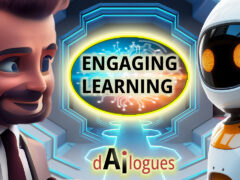
Engaging Learning
Throughout the following conversation please filter your responses through our previous agreements: Children can’t help but learn to become adults Learning is not just “a” central focus; it is “the” central dynamic of being human, encompassing every aspect of our existence and development. Because nothing within a child’s potential agency is (or can be) more […]
Share this:
- Click to share on Facebook (Opens in new window)
- Click to share on Twitter (Opens in new window)
- Click to share on LinkedIn (Opens in new window)
- Click to share on Pinterest (Opens in new window)
- Click to share on Pocket (Opens in new window)
- Click to share on Reddit (Opens in new window)
- Click to share on Telegram (Opens in new window)
- Click to share on Tumblr (Opens in new window)
- Click to share on WhatsApp (Opens in new window)
- Click to email a link to a friend (Opens in new window)
- Click to print (Opens in new window)
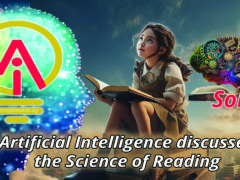
A.I. on the Science of Reading
Indeed the established assumptions about the inherent stagnancy of text permanently dictate this offline, strategy-based model of reading instruction.
Share this:
- Click to share on Facebook (Opens in new window)
- Click to share on Twitter (Opens in new window)
- Click to share on LinkedIn (Opens in new window)
- Click to share on Pinterest (Opens in new window)
- Click to share on Pocket (Opens in new window)
- Click to share on Reddit (Opens in new window)
- Click to share on Telegram (Opens in new window)
- Click to share on Tumblr (Opens in new window)
- Click to share on WhatsApp (Opens in new window)
- Click to email a link to a friend (Opens in new window)
- Click to print (Opens in new window)
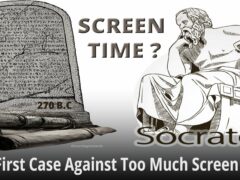
The First Case Against Too Much Screen Time
The first person known to argue against screen time was Socrates somewhere around twenty-four hundred years ago. He too was concerned with the unhealthy mental effects of spending too much time staring at and interacting with a hot technology. But the technology he was concerned about wasn’t digital, electronic, or interactive. Socrates was saying the […]
Share this:
- Click to share on Facebook (Opens in new window)
- Click to share on Twitter (Opens in new window)
- Click to share on LinkedIn (Opens in new window)
- Click to share on Pinterest (Opens in new window)
- Click to share on Pocket (Opens in new window)
- Click to share on Reddit (Opens in new window)
- Click to share on Telegram (Opens in new window)
- Click to share on Tumblr (Opens in new window)
- Click to share on WhatsApp (Opens in new window)
- Click to email a link to a friend (Opens in new window)
- Click to print (Opens in new window)
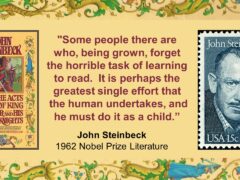
John Steinbeck on “The Horrible Task of Learning to Read”
This book is always right next to me when I am working. Every time I see it I am reminded of how it changed my life. It still blows me away. It was about 24 years ago. My then six-year-old daughter and I were at a garage sale on the island of Kauai. I remember […]
Share this:
- Click to share on Facebook (Opens in new window)
- Click to share on Twitter (Opens in new window)
- Click to share on LinkedIn (Opens in new window)
- Click to share on Pinterest (Opens in new window)
- Click to share on Pocket (Opens in new window)
- Click to share on Reddit (Opens in new window)
- Click to share on Telegram (Opens in new window)
- Click to share on Tumblr (Opens in new window)
- Click to share on WhatsApp (Opens in new window)
- Click to email a link to a friend (Opens in new window)
- Click to print (Opens in new window)

Paradigm Inertia: Science of Reading
You See What Your Knowledge Tells You To See Paradigms are the mental infrastructures that connect and unify the mental models through which we experience the world. Because paradigms, like religious beliefs, can become so deeply rooted in our identities, they can be very hard to change. Sometimes they are hard to change for scientific […]
Share this:
- Click to share on Facebook (Opens in new window)
- Click to share on Twitter (Opens in new window)
- Click to share on LinkedIn (Opens in new window)
- Click to share on Pinterest (Opens in new window)
- Click to share on Pocket (Opens in new window)
- Click to share on Reddit (Opens in new window)
- Click to share on Telegram (Opens in new window)
- Click to share on Tumblr (Opens in new window)
- Click to share on WhatsApp (Opens in new window)
- Click to email a link to a friend (Opens in new window)
- Click to print (Opens in new window)
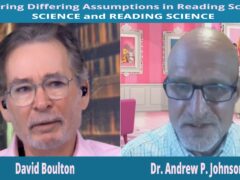
Exploring Differing Assumptions: Science and Reading Science
Dr. Andrew Johnson is a Reading Specialist and a Distinguished Faculty Scholar and Professor of Literacy at Minnesota State University. I, David Boulton, am a Learning Activist with Learning Stewards. Dr. Johnson and I have very different views about reading and the process of learning to read. We agreed to learn together and respectfully […]
Share this:
- Click to share on Facebook (Opens in new window)
- Click to share on Twitter (Opens in new window)
- Click to share on LinkedIn (Opens in new window)
- Click to share on Pinterest (Opens in new window)
- Click to share on Pocket (Opens in new window)
- Click to share on Reddit (Opens in new window)
- Click to share on Telegram (Opens in new window)
- Click to share on Tumblr (Opens in new window)
- Click to share on WhatsApp (Opens in new window)
- Click to email a link to a friend (Opens in new window)
- Click to print (Opens in new window)
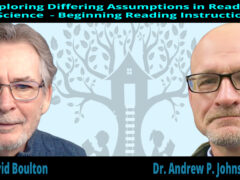
Exploring Differing Assumptions in Reading Science – Beginning Reading Instruction
Dr. Andrew Johnson is a Reading Specialist and a Distinguished Faculty Scholar and Professor of Literacy at Minnesota State University. I, David Boulton, am a Learning Activist with Learning Stewards. Dr. Johnson and I have very different views about reading and the process of learning to read. We agreed to learn together and respectfully […]
Share this:
- Click to share on Facebook (Opens in new window)
- Click to share on Twitter (Opens in new window)
- Click to share on LinkedIn (Opens in new window)
- Click to share on Pinterest (Opens in new window)
- Click to share on Pocket (Opens in new window)
- Click to share on Reddit (Opens in new window)
- Click to share on Telegram (Opens in new window)
- Click to share on Tumblr (Opens in new window)
- Click to share on WhatsApp (Opens in new window)
- Click to email a link to a friend (Opens in new window)
- Click to print (Opens in new window)

Musk: AI Will Hit Us Like An Asteroid
“It blows my mind that people can’t apply exponential growth to the capabilities of AI. You would’ve been called a *lunatic* a year ago if you said we’d have GPT-4 level AI right now. Now think another year. 5yrs? 10yrs? It’s going to hit them like an asteroid.” “I saw it happening from well before […]
Share this:
- Click to share on Facebook (Opens in new window)
- Click to share on Twitter (Opens in new window)
- Click to share on LinkedIn (Opens in new window)
- Click to share on Pinterest (Opens in new window)
- Click to share on Pocket (Opens in new window)
- Click to share on Reddit (Opens in new window)
- Click to share on Telegram (Opens in new window)
- Click to share on Tumblr (Opens in new window)
- Click to share on WhatsApp (Opens in new window)
- Click to email a link to a friend (Opens in new window)
- Click to print (Opens in new window)
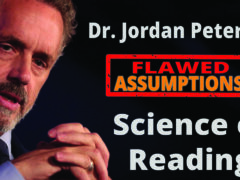
Dr. Jordan Peterson on Teaching Reading
This clip begins with Dr. Peterson suggesting that motivating kids to learn to read is key to improving our educational and societal improvement efforts. He then proceeds to provide an overview of the conventional (Science of Reading) model of teaching reading. The clip ends with the prescient statement: “if the faculties of education were […]
Share this:
- Click to share on Facebook (Opens in new window)
- Click to share on Twitter (Opens in new window)
- Click to share on LinkedIn (Opens in new window)
- Click to share on Pinterest (Opens in new window)
- Click to share on Pocket (Opens in new window)
- Click to share on Reddit (Opens in new window)
- Click to share on Telegram (Opens in new window)
- Click to share on Tumblr (Opens in new window)
- Click to share on WhatsApp (Opens in new window)
- Click to email a link to a friend (Opens in new window)
- Click to print (Opens in new window)
